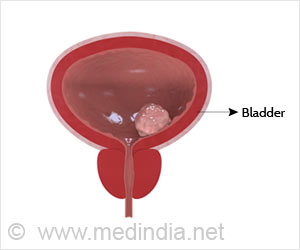Blocking the expression of MDA-9/Syntenin causes glioma stem cells to lose their ability to induce protective autophagy and succumb to anoikis, resulting in cancer cell death.

‘Mechanism that protect glioma stem cells can potentially be exploited to develop new and more effective treatments for glioblastoma multiforme.’





"We discovered that when we blocked the expression of MDA-9/Syntenin, glioma stem cells lose their ability to induce protective autophagy and succumb to anoikis, resulting in cancer cell death," says Paul B. Fisher, M.Ph., Ph.D., F.N.A.I., Thelma Newmeyer Corman Endowed Chair in Cancer Research and member of the Cancer Molecular Genetics research program at VCU Massey Cancer Center, chairman of the Department of Human and Molecular Genetics at VCU School of Medicine and director of the VCU Institute of Molecular Medicine. Fisher originally discovered the MDA-9/Syntenin gene, and he and others have shown it to be overexpressed in a majority of cancers. Fisher, in collaboration with Webster K. Cavenee, Ph.D., Distinguished Professor, Ludwig Institute for Cancer Research, University of California San Diego (UCSD) and other colleagues, found that MDA-9/Syntenin maintains protective autophagy by activating BCL2, a gene that regulates cell death. Additionally, they showed that MDA-9/Syntenin suppresses high levels of autophagy that would be toxic to the cell through epidermal growth factor receptor (EGFR) signaling. Excessive EGFR signaling has been shown to contribute to tumor growth in a wide variety of cancers.
"In the absence of MDA-9/Syntenin, EGFR can no longer maintain protective autophagy. Instead, highly elevated and sustained levels of toxic autophagy ensue that dramatically reduce cancer cell survival," says Fisher. "This is the first study to define a direct link between MDA-9/Syntenin, protective autophagy and anoikis resistance. We're hopeful we can exploit this process to develop new and more effective treatments for GBM and possibly other cancers."
Using GBM cells from patients who underwent surgical removal of their tumors, the scientists demonstrated the loss of these protective biological functions in the absence of MDA-9/Syntenin through laboratory experiments involving glioma stem cell cultures. These findings were then tested in mouse models of human stem cells, where an increase in survival occurred following MDA-9/Syntenin inhibition.
This study builds on an extensive line of research by Fisher and his colleagues into the role of MDA-9/Syntenin in cancer development and progression. Moving forward, they hope to determine if the process they uncovered in this research applies to stem cells from other cancer types. They also plan to continue developing new ways to block the expression of MDA-9/Syntenin. Fisher described one such approach in a recent study demonstrating the effectiveness of an experimental inhibitory drug known as a PDZ1i in reducing MDA-9/Syntenin's ability to promote invasion of GBM cells in vitro (outside of a living organism) and in vivo (in a living organism).
Advertisement
Source-Eurekalert














